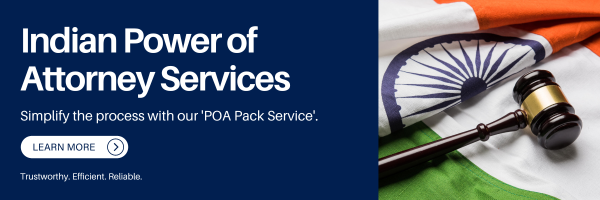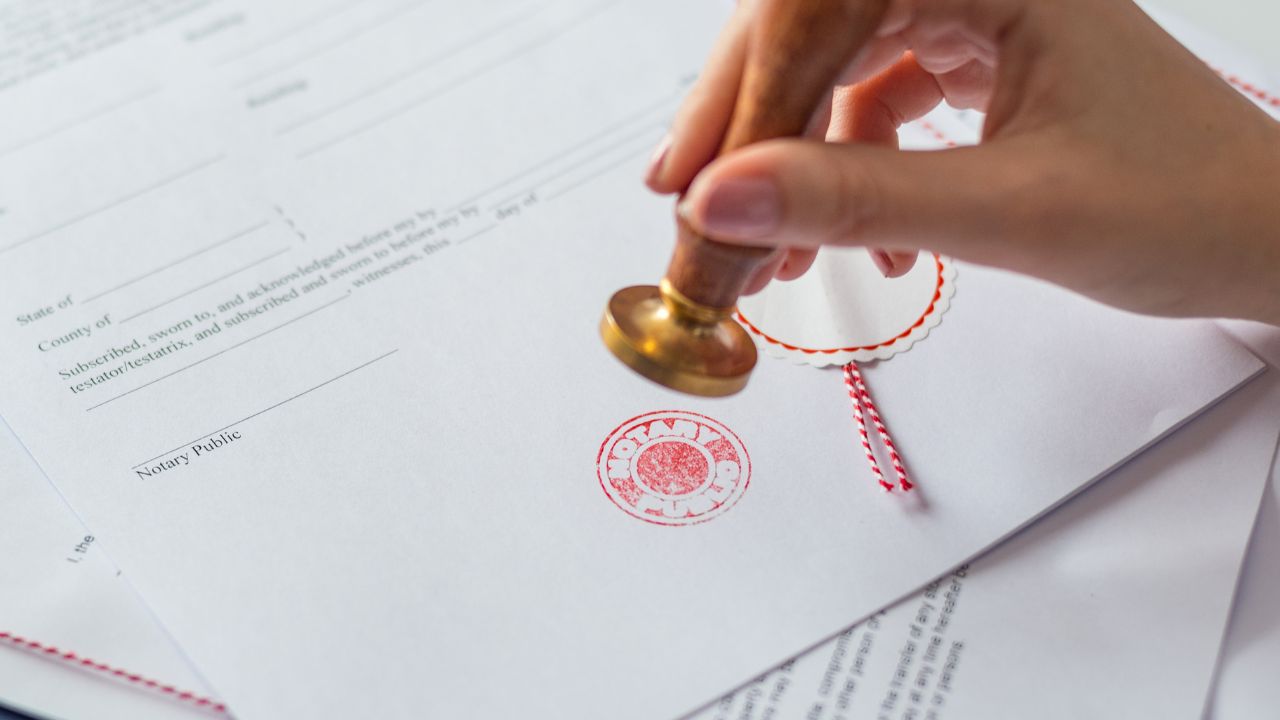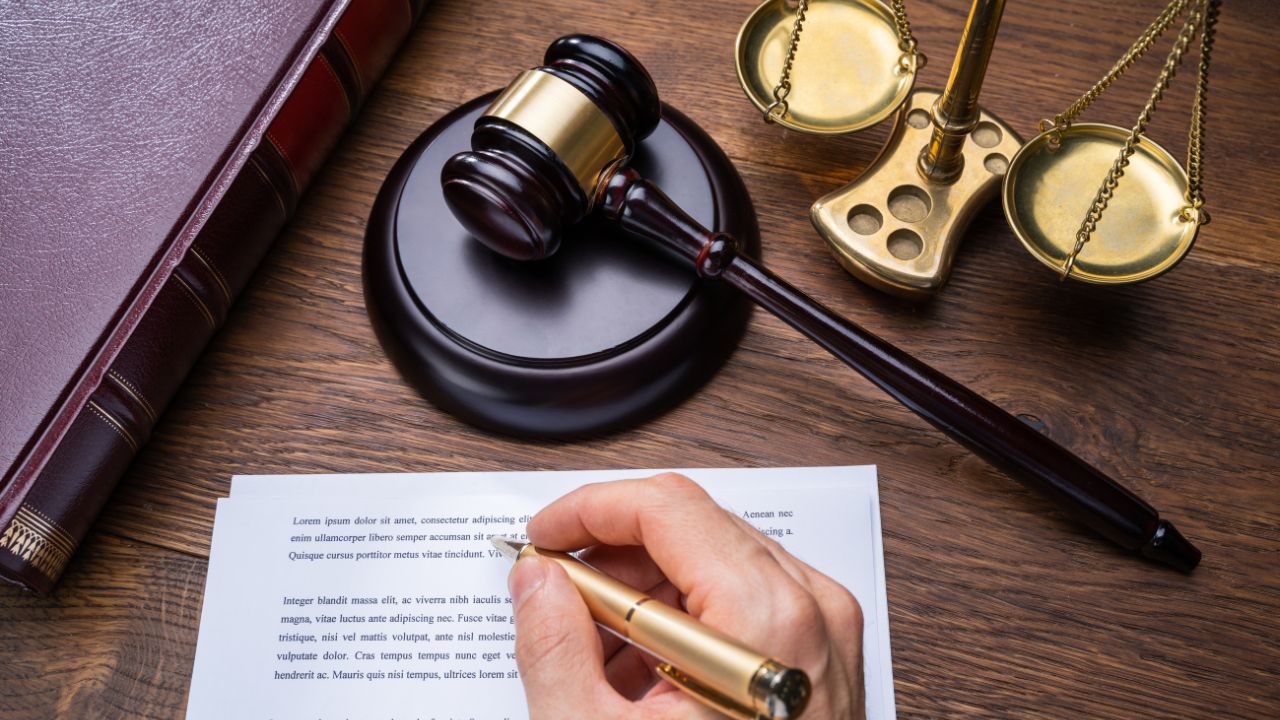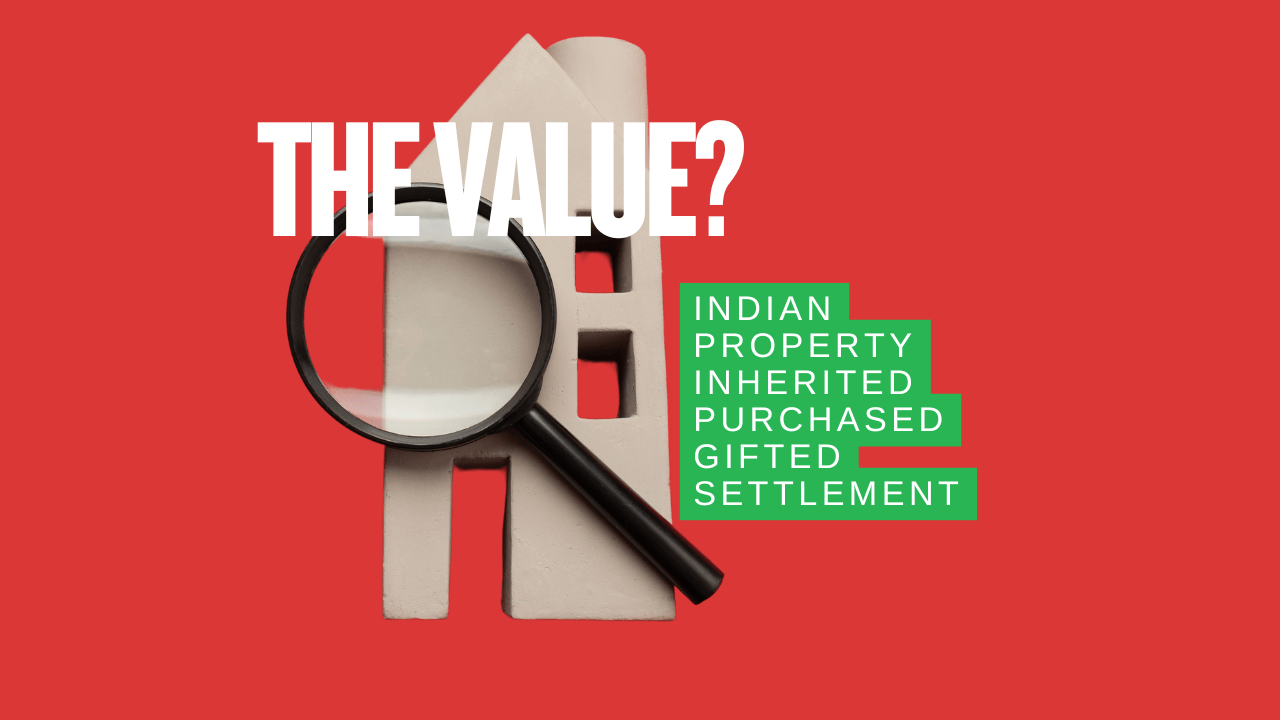Non-Resident Indians (NRIs), Persons of Indian Origin (PIOs) and Overseas Citizens of India (OCIs) living in the UK who own Indian property, have bank accounts or other legal dealings in India often find themselves in complex legal situations as the legal procedures in India can be quite different compared to the UK. A Power of Attorney can help reduce travel frequency and hassle and make life easier for such individuals.
Furthermore, acting as a Power of Attorney on someone’s behalf or giving a Power of Attorney to someone to act on your behalf, if not executed properly, can end up wasting precious time and money.
We have outlined the three steps you will need to follow to ensure that your Indian Power of Attorney process is seamless and worry-free.
Step 1. Drafting the Indian Power of Attorney
The best way to begin the process is to seek professional legal advice from someone experienced in such matters. There is vast conflicting information online, and seeking the right legal advice will save time and money.
The content and structure of the Power of Attorney document are vital. You must ensure that the content is clear and concise to ensure the Attorney can carry out the intended tasks. The contents of the Power of Attorney must adhere to Indian Law. If the local authorities or officers in India find the contents of the Power of Attorney ambiguous, they may refuse to process the desired work.
Your Attorney in India may also send you the drafted Power of Attorney. If you choose to take this option, it is strongly recommended that a professional Indian legal advisor review the Powers you give in the document.
The Indian Power of Attorney will require you to have two witnesses who will sign the document. You must ensure that the witnesses are not related to you or do not benefit from the execution of Power of Attorney in any way.
You will all need to provide photographic proof of identity, hard copies of your passport, and proof of address.

Step 2. Legalising the Power of Attorney in the UK
After the document is drafted professionally, the next step will be to legalise it for use in India. Without adhering to the specific legalities of this process, the Power of Attorney document will not be accepted by the Indian authorities.
Firstly, the Power of Attorney will have to be notarized by a Notary Public. It is important to find a Notary Public who knows the intricacies of Indian legal documents. Sometimes, a Notary Public will refuse to act or deter you from giving a Power of Attorney as they are unaware of the process.
The two witnesses will sign the document in the presence of the Notary Public, and the Notary Public may charge you anywhere between £20 -£100.
The next step will be to visit the Indian High Commission in London (or the consulate branch in Birmingham) to get your documentation attested. The Indian High Commission has specific requirements for individuals who require attestation of their documents. Along with other documentary evidence, you will have to book an appointment and pay a fee of £19.
Step 3. Sending the document and legalisation in India
Once your Indian Power of Attorney is legalised from the UK, send the document via registered post to the address of your Attorney in India. Your Attorney will need to register the Power of Attorney in the offices of the Sub-Registrar or Secretariat of the relevant area in India. Your Attorney must present and submit evidence of his/her identification alongside the Power of Attorney. A small fee will also be payable to process the document.
Once the Indian Power of Attorney has undergone the legal formalities described above, it becomes active, and your Attorney can use the document for its intended purpose.
How can we help
Our team comprises highly experienced professionals in the field of Indian property law. Over the years, we have garnered extensive expertise in assisting numerous individuals in the creation of their Indian Power of Attorneys, facilitating efficient management of their legal affairs. To discuss your Indian Power of Attorney with an experienced member of our team, call us on 0208 757 5751 or use our contact form.
Please note that we do not offer notary services.
Related Posts
- Power of Attorney Pack Service
- Real Cost of an NRI Power of Attorney
- NRI Power of Attorney Mistakes to Avoid
- Pros and Cons of an NRI General Power of Attorney
- Power of Attorney Guide for Non-Resident Indians
- What is a PAN Card and How to Apply for an NRI PAN?
Frequently Asked Questions
A foreign Power of Attorney is valid in India if it is drafted as per Indian Law, duly notarised, attested by the Indian Consulate and registered with the relevant authority in India.
You can cancel your Power of Attorney from abroad through a Deed of Revocation.
Indian Power of Attorney’s are required to be physically stamped, so this cannot be done online.
No, you will need to make a new POA under Indian Law. A POA or LPA made for the UK will not be accepted in India.






